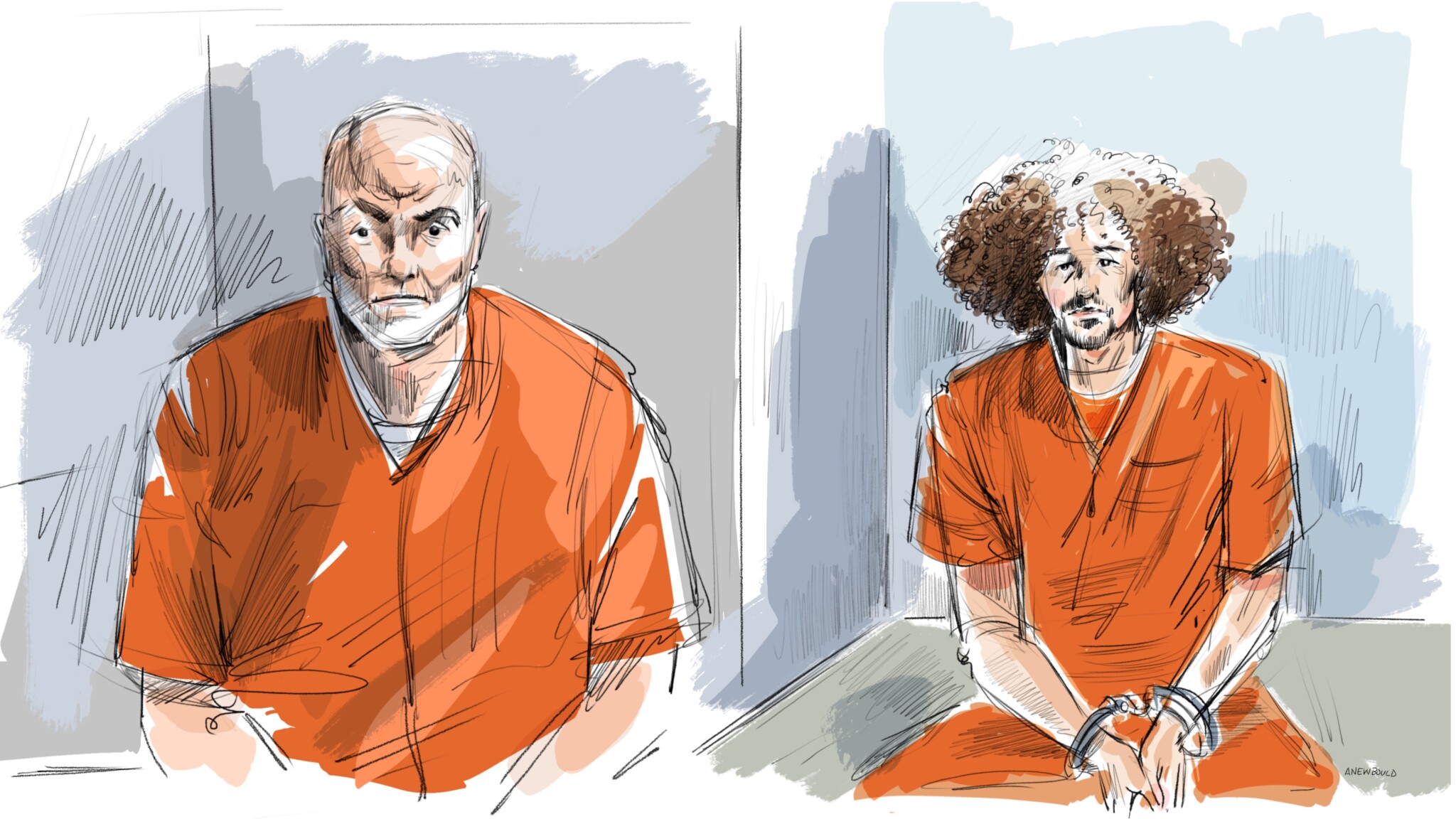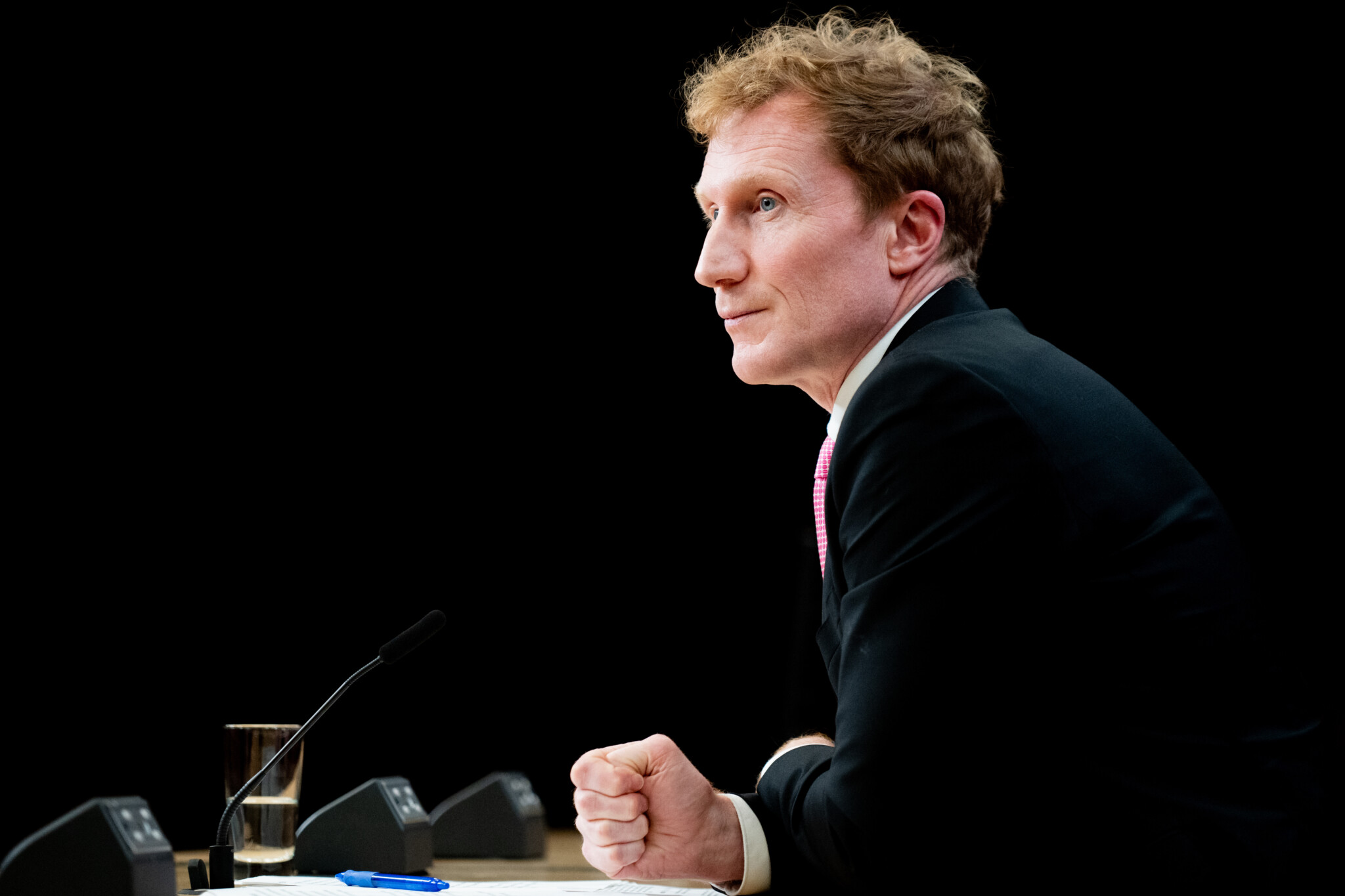Significant questions are being asked of Canada’s security and immigrant vetting processes following the arrests last month of Ahmed Fouad Mostafa Eldidi, 62, and Mostafa Eldidi, 26, a father and son facing charges that include conspiracy to commit murder for the benefit or at the direction of a terrorist group—in this case, ISIS.
Reports have emerged that the pair were able to immigrate to Canada despite the elder Eldidi having participated in violence, including torture and dismemberment, against an ISIS prisoner. The assault was recorded on video and released by ISIS prior to the pair’s immigration to Canada.
Ahmed Fouad Mostafa Eldidi is a Canadian citizen while his son, Mostafa, is not.
Police claimed the father and son were “in the advanced stages of planning a serious, violent attack in Toronto,” before their arrest.
To better understand Canada’s immigration vetting process, Sean Speer, The Hub’s editor-at-large, exchanged with Chris Alexander, Canada’s minister of Citizenship and Immigration from 2013 to 2015, who offered his expert insight on how the pair may have slipped through the cracks without raising alarm.
SEAN SPEER: How does the Department of Immigration, Refugees and Citizenship draw on intelligence and national security analysis when judging the admissibility of an immigration applicant? Does the department have its own capacity or does it draw on the capacity concentrated in CSIS and other national security agencies? If the latter, what’s the mechanism or process for such analysis to be pulled into the department’s decision-making?
CHRIS ALEXANDER: The Department of Immigration, Refugees and Citizenship uses national security-related information to make decisions, but this information invariably originates with CSIS, the RCMP, or our trusted allies and partners that share such information with us. When an applicant has never before been flagged for national security-related concerns, then IRCC is relying on CSIS, relevant police services, and their international partners to ensure nothing new has come to light. Timelines are often short; resources are invariably stretched; and matching applicants to data generated by national security review across languages, alphabets, and administrative systems can pose challenges.
SEAN SPEER: What type of national security review is typically used for immigration applicants compared to more extraordinary cases? What’s the triage process for determining the level of national security review?
CHRIS ALEXANDER: Applicants for permanent residence receive a more thorough review than say, international students or temporary workers. Anyone with a background in police, the military, or security services will receive additional vetting, especially if they come from a country with a less-than-stellar human rights record. The country of origin and any other places where the applicant lived, studied, or worked are also taken into account: if any of these countries are theatres where significant terrorist or extremist groups operate, where wars, civil wars or other armed conflicts are underway, or where hostile intelligence services may be recruiting assets, then there will be additional vetting as well. The parameters for Canada’s national security vetting are always shifting as the threat environment evolves, and our assessments catch up (or fail to catch up) to fast-changing realities on the ground around the world.
SEAN SPEER: Based on what we know about this particular case, what might have happened such that this individual’s participation in an ISIS-related execution was not factored into his admissibility?
CHRIS ALEXANDER: The information on the file might have been incomplete. For sound operational reasons, those monitoring ISIS comms and participants in ISIS war crimes may not have made their information fully available to national security databases. Stove-piping still happens; delays happen. Names also get garbled: “credible” sources may have claimed this was not the same person. Mistakes are human nature. In addition, our national security machinery has shifted gears in recent years away from terrorist threats to focus more on China, Russia, and homegrown extremism—the flames of which are often fanned online by state actors that engage in large-scale disinformation and active measures, such as Russia.

Ahmed Fouad Mostafa Eldidi, 62, left, is seen in a courtroom sketch with his son, Mostafa Eldidi, as they appeared via video for a hearing in Newmarket, Ont., Aug. 1, 2024. Alexandra Newbould/The Canadian Press.
SEAN SPEER: Is this a widespread problem in your view? To what extent does it suggest that there are others—perhaps many others—in the country with broadly similar backgrounds or past actions?
CHRIS ALEXANDER: Our system is not prone to widespread, systemic failures—it’s quite solid. But over the decades we have failed on several fronts. One example is the number of Iranian and Syrian regime officials—some with allegations of having committed terrible crimes in those countries—who somehow slipped through our vetting system. But the main challenge today is that the number of threats—from terrorist and criminal groups, as well as hostile foreign states—has grown significantly while our national security capabilities have failed to keep pace.
Add to this tension the unprecedented numbers of immigrants, temporary workers, international students, asylum claimants, and other visitors flowing into Canada over the past two years—roughly double the usual levels, with asylum backlogs rising rapidly—and you have a recipe for more frequent failures. For instance, over the period when Mexicans were coming to Canada visa-free, how many drug cartel operatives eager to open new routes into the U.S. came to Canada? We may never know. The same may be true for ISIS, representatives of China’s United Front Work Department, Iran’s Revolutionary Guards (IRGC) or Ministry of Intelligence and Security (MOIS), and even Hamas or Hezbollah, which have historically had quite robust networks in Canada.
As we have all observed to our dismay, our current government has not been heeding national security advice and, to put it very mildly, has not been vigilant on these issues over the past nine years. Our allies (particularly in the Five Eyes intelligence-sharing community) have noticed, and our reputation has been tarnished as a result.
SEAN SPEER: What, if any reforms, do you think should be undertaken to strengthen the process for assessing immigration applicants through an intelligence and national security lens?
CHRIS ALEXANDER: The key to successful national security review is rapid, continuous, skillful integration of available information. The right insights are out there, but they only shape immigration outcomes in the right ways when the data is well-organized, easily accessible, and properly brought to bear on decision-making. My guess is that those responsible for these issues have been run ragged in recent years: they need backup, a full review of our procedures, and (where necessary) modernization and integration of the relevant secure communication systems and databases.
We need to put sound national security practices back at the centre of our immigration policy—as well as our policy across government. In a world where all categories of threat actors are looking for the line of least resistance worldwide to launder money, move operatives, recruit new supporters, and disrupt democracy, Canada has become an easy mark in recent years. We need to restore our reputation for a best-in-class immigration and refugee programmes rooted in sound, reliable national security vetting. We also need to harden our defences, increase our military spending, and upgrade and broaden our national security capabilities to protect Canadians in general as well as the integrity of our immigration and refugee determination system at a time when hostile state and non-state actors have become more hostile almost across the board.








